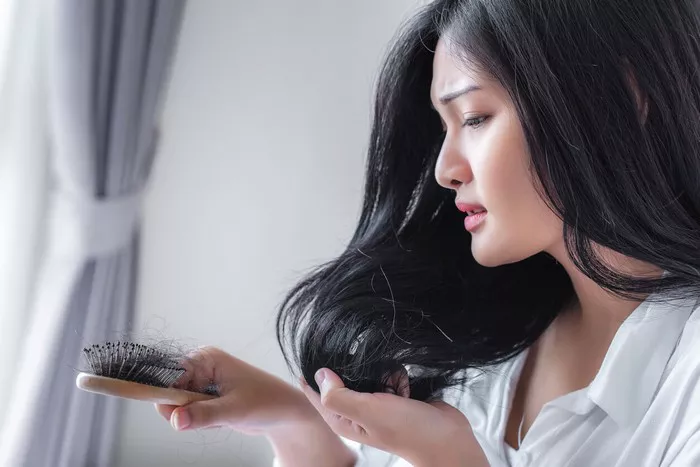Experiencing hair loss can be a distressing concern for many women, impacting both physical appearance and self-esteem. While various factors can contribute to hair loss, including genetics, hormonal imbalances, and nutritional deficiencies, recent attention has focused on the potential role of vitamin D. Vitamin D is essential for overall health, but can too much of it lead to hair loss in females? In this comprehensive guide, we’ll delve into the science behind vitamin D and its potential effects on hair health, exploring whether excessive vitamin D intake could be a culprit in female hair loss.
Understanding Hair Loss in Females:
Types and Causes: Female hair loss can manifest in different forms, including female pattern baldness (androgenetic alopecia), telogen effluvium (temporary shedding), and alopecia areata (autoimmune-related hair loss). Each type may have different underlying causes.
Contributing Factors: Factors such as genetics, hormonal imbalances (e.g., polycystic ovary syndrome), stress, nutritional deficiencies, and certain medical conditions or medications can contribute to hair loss in females.
The Role of Vitamin D in Hair Health:
Vitamin D and Hair Follicles: Vitamin D receptors are present in the cells of hair follicles, suggesting a potential role in hair growth regulation. Vitamin D may influence the proliferation and differentiation of hair follicle cells, as well as the hair growth cycle.
Promotes Healthy Hair Growth: Adequate vitamin D levels are believed to support healthy hair growth by promoting the proliferation of hair follicle cells and regulating the hair growth cycle. Vitamin D deficiency has been associated with hair thinning and hair loss in some individuals.
The Potential Effects of Excess Vitamin D on Hair Health:
Disruption of Calcium Balance: Excessive vitamin D intake can lead to hypercalcemia, a condition characterized by elevated levels of calcium in the blood. Hypercalcemia may disrupt calcium balance in the body, potentially affecting hair follicle function and hair growth.
Induction of Telogen Effluvium: In some cases, excessive vitamin D intake may trigger telogen effluvium, a condition characterized by excessive shedding of hair in the resting (telogen) phase of the hair growth cycle. This temporary form of hair loss usually resolves on its own once the underlying cause is addressed.
Interaction with Hormonal Pathways: Vitamin D may interact with hormonal pathways involved in hair growth regulation, such as the androgen receptor pathway. Excessive vitamin D levels could potentially disrupt these hormonal pathways, leading to hair loss in susceptible individuals.
Evidence and Studies:
Limited Clinical Evidence: While there is some anecdotal evidence and case reports linking excessive vitamin D intake to hair loss, robust clinical studies are lacking. More research is needed to establish a definitive link between excess vitamin D and female hair loss.
Individual Variability: It’s important to recognize that individual responses to vitamin D supplementation may vary. While some individuals may experience adverse effects from excessive vitamin D intake, others may tolerate higher levels without experiencing hair loss or other symptoms.
Considerations and Precautions:
Consultation with Healthcare Professional: Before starting any new supplement regimen, especially high-dose vitamin D supplementation, it’s essential to consult with a healthcare professional or dermatologist. They can help determine your individual vitamin D needs and assess the risk of potential side effects, including hair loss.
Monitoring Vitamin D Levels: If you’re considering vitamin D supplementation, your healthcare provider may recommend periodic monitoring of your vitamin D levels to ensure you’re not exceeding recommended intake levels. This can help prevent the risk of vitamin D toxicity and associated adverse effects.
Conclusion:
While vitamin D plays a crucial role in overall health and may have potential benefits for hair health, excessive vitamin D intake can have adverse effects, including hair loss in some individuals. While there is limited clinical evidence linking excess vitamin D to female hair loss, anecdotal reports and case studies suggest a possible association. It’s essential to approach vitamin D supplementation with caution and under the guidance of a healthcare professional to avoid potential adverse effects. By maintaining a balanced approach to vitamin D intake and addressing underlying causes of hair loss, women can optimize their chances of maintaining healthy hair growth and overall well-being.
In conclusion, while excessive vitamin D intake may potentially contribute to hair loss in females, more research is needed to establish a definitive link and understand the underlying mechanisms.
Can High Testosterone Cause Hair Loss

